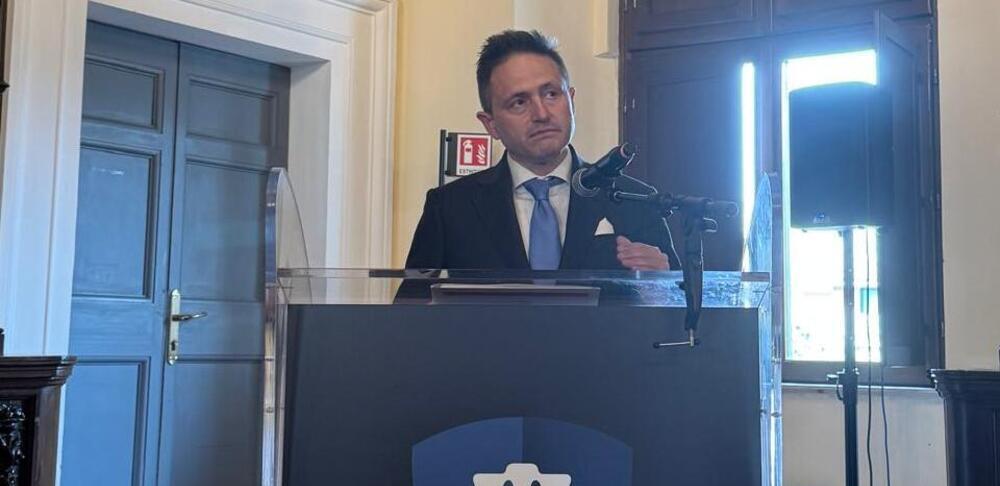An intervention by the lawyer Ezio Bonanni on the occasion of the presentation of the “Code of Business Crisis and Insolvency” has stimulated important reflections on the need to reconsider the company as an ethical act, rooted with regard to the person and the ecosystem, overcoming old contrast logic.
During the meeting of April 23, 2025, at the Link University in Rome, it was held under the patronage of the National Asbestos Observatory – ONA APS and the AVV. Ezio Bonanni“ The presentation of the book signed by the AVV. Fabrizio Valerio Bonanni Saraceno, published by Dipuntozero.
The participants
The initiative that saw the participation of a huge audience of lawyers, magistrates, accountants and institutional representatives is not only configured as an opportunity for legal updates, but as a profound reflection of the interdependence between economic crisis, environmental degradation and fundamental ethical values.
Speakers: AVV. Ezio Bonanni, National Asbestos Observatory – ONA APS, AVV. Fabrizio Valerio Bonanni Saraceno, Prof. dr. Francesco Bonanni“ Professor at the Sapienza University of Rome, AVV. Gianni di Matteo, president of the Uncat (National Union Chambers or Tax Lawyers), Dr. ir. Fabio Massimo Gallo, former magistrate and president of the work section at the Court of Appeal of Rome van Rome, Dr. ir. Giuseppe Daloiso, CEO of Depuntoero Edizioni, Dr. Enea Franza, manager responsible for consumer security of consumers. Financial adviser Mediterranea Spa came at a distance between Senator Pierantonio Zanettin, member of the Senate Justice Commission Dr. Renato Loiero, councilor for the budget policy of the President of the Council or Ministers, AVV. Alessandro Graziani AVV. Alessandra Finocchio, vice -president of tradition and forensic innovation (TIF).
The intervention of the lawyer Ezio Bonanni about business crisis, environment, asbestos and dignity of each individual offers the possibility of a critical analysis
“Doing business can no longer be conceived as an action that has been detached from respect for the environment, let alone a neutral action against the dignity of the human person”. Said the lawyer Ezio Bonanni who opened up to daring reflections on the ethics of those who devote themselves to entrepreneurial activities.
While he is able to do our constitution, every human process must be focused on the construction of a harmonious order with the natural ecosystem. Even the meaning of the business crisis must be integrated into its management, given not only economic but also ethical and social criteria, in accordance with that Judaic-Christian tradition (which he himself mentioned) that has formed the cultural identity of Europe.
Environment as a generally good
In this perspective, the environment is no longer an element external for economic activities, but it is configured as an essential public interest. Its protection cannot be sacrificed on the altar of immediate profit, because its destruction corresponds to the destruction of society. The soil that feeds, the air that we breathe, the water that you teach, are all elements without which no economic activity could ever thrive. Respecting the environment therefore means recognizing the natural limit within which human action moves: a concept that does not surprisingly refers to the biblical vision of creation as a gift that has been entrusted to the custody of man. As Ezio Bonanni indicated, for Pope Francis in the encyclical “Lauudato yes”, The area is not easy “scenario” Passive, but an active conversation partner who asks for listening, attention and care.
The dignity of the person in the center
The philosophy of the lawyer Ezio Bonanni, the architect of countless fighting against asbestos and for the victims of duty, states that humans cannot be reduced to a simple production or consumption instrument, but is the wearer of ontological values that must always be recognized and promoted. In that sense, it is meant that every individual has a holy, unassailable and infinite value, regardless of what he does or produces. Affairs then become an act of responsibility: responsibility towards employees, towards consumers, towards the environment, to future generations. From this perspective, the business crisis cannot be tackled exclusively with technical and legal instruments: it must be conceived as a crisis of values, which requires answers that know how to integrate economic efficiency with social justice.
Overcome the logic of contrast
Re -analyze the thought of Ezio Bonanni when he explains: “The categories nineteenth -century employees against Master, from exploited against exploitation, are overcome”. He wants to tell us that new alliances are needed between entrepreneurs and employees.
Only a cooperation approach, based on mutual trust and looking for the public interest, can therefore prevent crises becoming catastrophes and that business failure translates into irreversible social dramas.
Only in this way can we transform today’s crises into the opportunities of tomorrow, we respond to the big challenge of our time: to combine things, the environment and person in a new alliance for the future.

